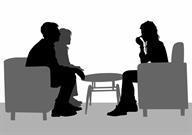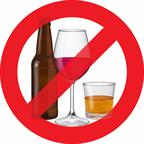Substance Use Disorder
Substance use disorder occurs when a person's repeated use of drugs or alcohol interferes with the ability to be productive. This disorder can cause problems with mental and physical health. It can affect your ability to have healthy relationships, and it can keep you from being able to meet your responsibilities at work, home, or school. It can also lead to addiction, which is a condition in which you cannot stop using the substance consistently for a period of time.
Addiction changes the way the brain works. Because of these changes, addiction is a chronic condition. Substance use disorder can be mild, moderate, or severe.
Some commonly misused substances that can lead to this disorder include:
Alcohol.
Tobacco.
Marijuana.
Stimulants, such as cocaine and methamphetamine.
Hallucinogens, such as LSD and PCP.
Opioids, such as some prescription pain medicines and heroin.
What are the causes?
This condition may develop due to many complex social, psychological, or physical reasons, such as:
Stress.
Abuse.
Peer pressure.
Anxiety or depression.
What increases the risk?
This condition is more likely to develop in people who:
Use substances to cope with stress.
Have been abused.
Have a mental health disorder, such as depression.
Have a family history of substance use disorder.
What are the signs or symptoms?
Symptoms of this condition include:
Using the substance for longer periods of time or at a higher dosage than what is normal or intended.
Having a lasting desire to use the substance.
Being unable to slow down or stop the use of the substance.
Spending an abnormal amount of time getting the substance, using the substance, or recovering from using the substance.
Using the substance in a way that interferes with work, school, social activities, and personal relationships.
- Using the substance even after having negative consequences, such as:
Needing more and more of the substance to get the same effect (developing tolerance).
Experiencing unpleasant symptoms if you do not use the substance (withdrawal).
Using the substance to avoid withdrawal symptoms.
How is this diagnosed?
This condition may be diagnosed based on:
How is this treated?

This condition may be treated by:
Stopping substance use safely. This may require taking medicines and being closely monitored for several days.
Taking part in group and individual counseling from mental health providers who help people with substance use disorder.
Staying at a live-in (residential) treatment center for several days or weeks.
Attending daily counseling sessions at a treatment center.
- Taking medicine as told by your health care provider:
To ease symptoms and prevent complications during withdrawal.
To treat other mental health issues, such as depression or anxiety.
To block cravings by causing the same effects as the substance.
To block the effects of the substance or replace good sensations with unpleasant ones.
Participating in a support group to share your experience with others who are going through the same thing. These groups are an important part of long-term recovery for many people.
Recovery can be a long process. Many people who undergo treatment start using the substance again after stopping (relapse). If you relapse, that does not mean that treatment will not work.
Follow these instructions at home:

-
Take over-the-counter and prescription medicines only as told by your health care provider.
-
Do not use any drugs or alcohol.
-
Avoid temptations or triggers that you associate with your use of the substance.
-
Learn and practice techniques for managing stress.
-
Have a plan for vulnerable moments. Get phone numbers of people who are willing to help and who are committed to your recovery.
-
Attend support groups on a regular basis. These groups include 12-step programs like Alcoholics Anonymous and Narcotics Anonymous.
-
Keep all follow-up visits. This is important. This includes continuing to work with therapists and support groups.
-
Substance Abuse and Mental Health Services Administration (SAMHSA):
www.samhsa.gov
-
Contact a health care provider if:
Drug overdose is an emergency. Do not wait to see if the symptoms will go away. Get medical help right away. Call your local emergency services (911 in the U.S.). Do not drive yourself to the hospital.
If you ever feel like you may hurt yourself or others, or have thoughts about taking your own life, get help right away. Go to your nearest emergency department or:
-
Call your local emergency services (911 in the U.S.).
-
Call a suicide crisis helpline, such as the National Suicide Prevention Lifeline at 1-800-273-8255 or 988 in the U.S. This is open 24 hours a day in the U.S.
-
If you’re a Veteran:
Summary
-
Substance use disorder occurs when a person's repeated use of drugs or alcohol interferes with the ability to be productive.
-
Taking part in group and individual counseling from mental health providers is a common treatment for people with substance use disorder.
-
Recovery can be a long process. Many people who undergo treatment start using the substance again after stopping (relapse). A relapse does not mean that treatment will not work.
-
Attend support groups such as Alcoholics Anonymous and Narcotics Anonymous. These groups are an important part of long-term recovery for many people.
This information is not intended to replace advice given to you by your health care provider. Make sure you discuss any questions you have with your health care provider.
 This condition may be treated by:
This condition may be treated by: